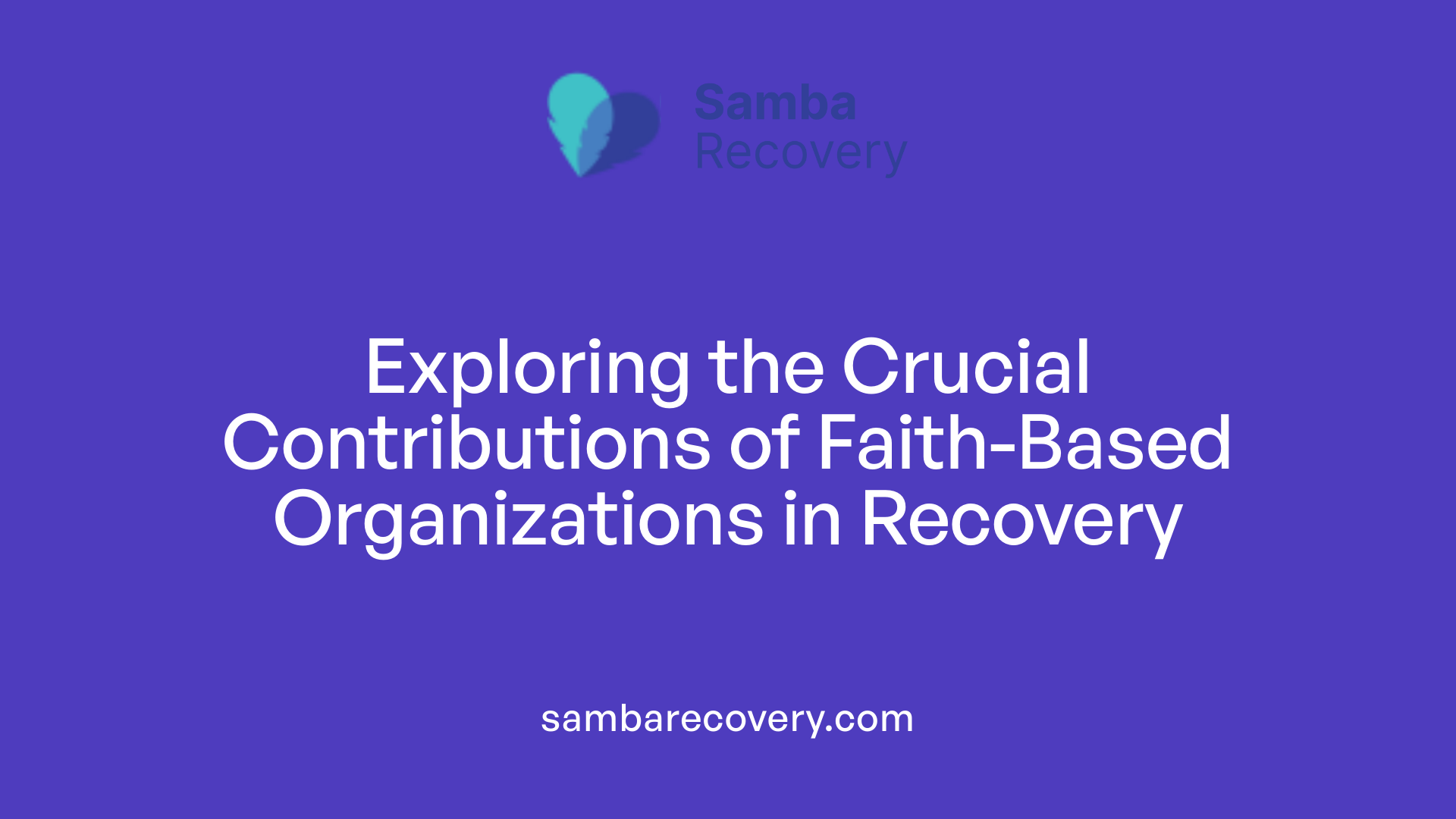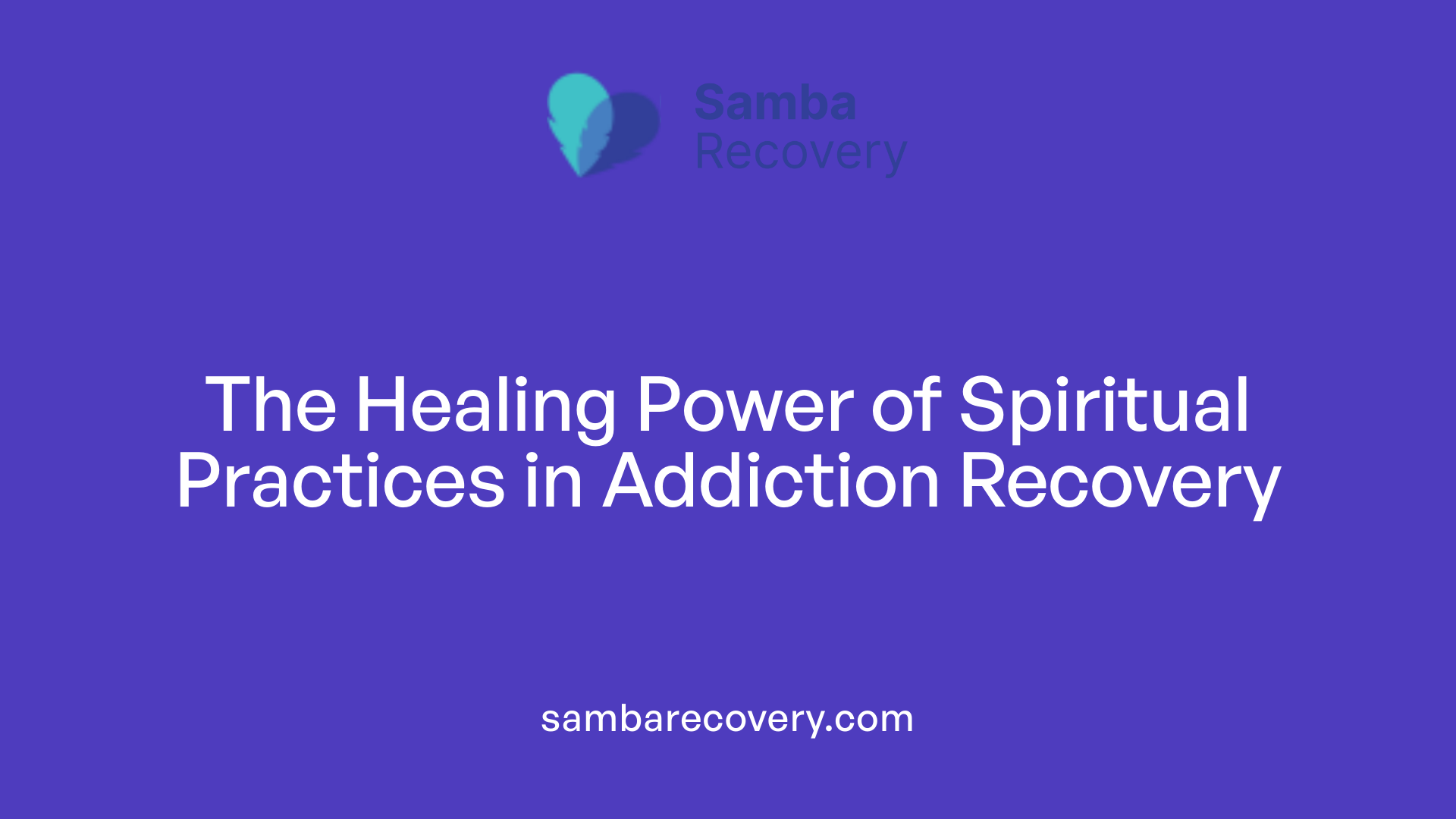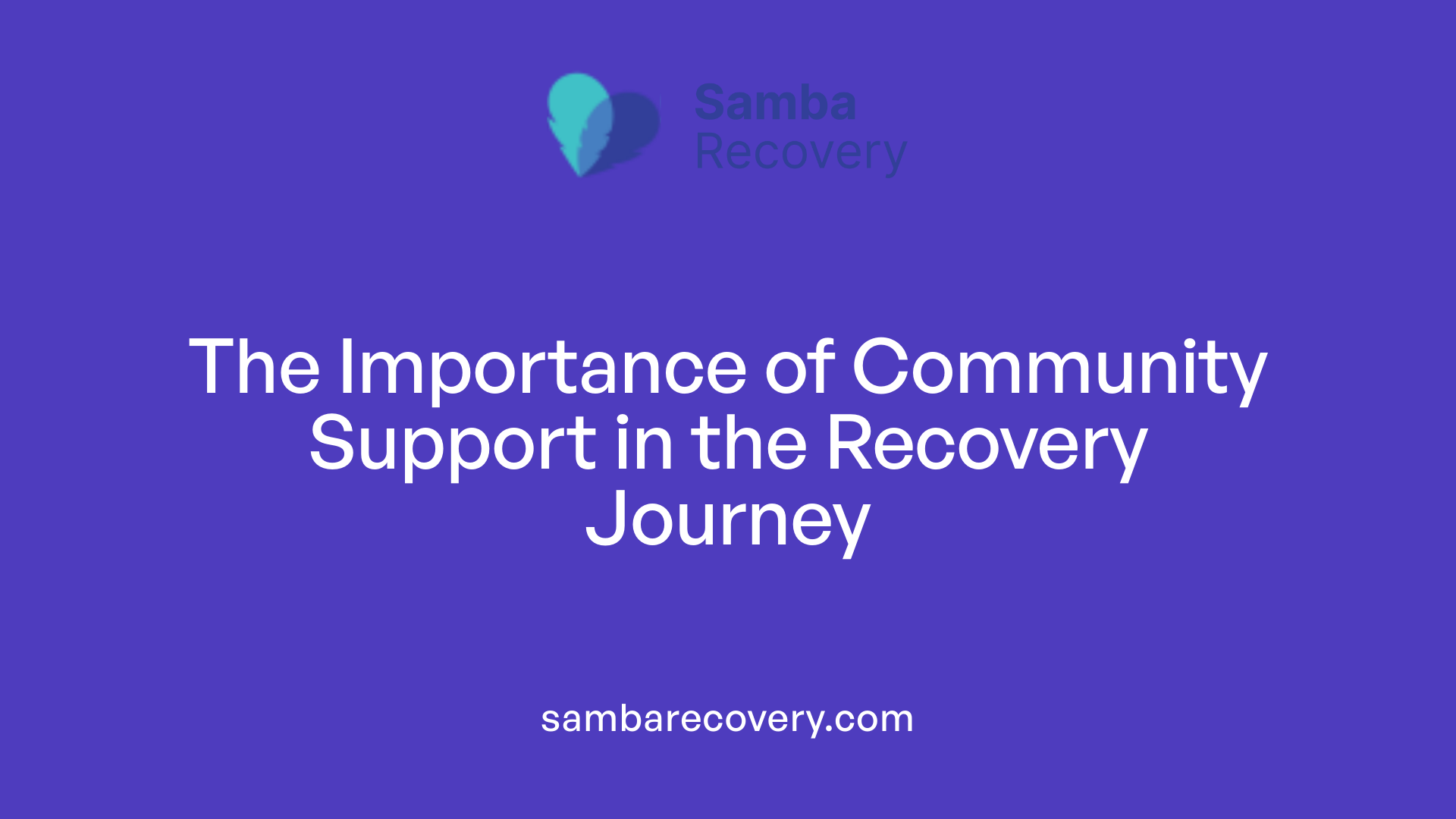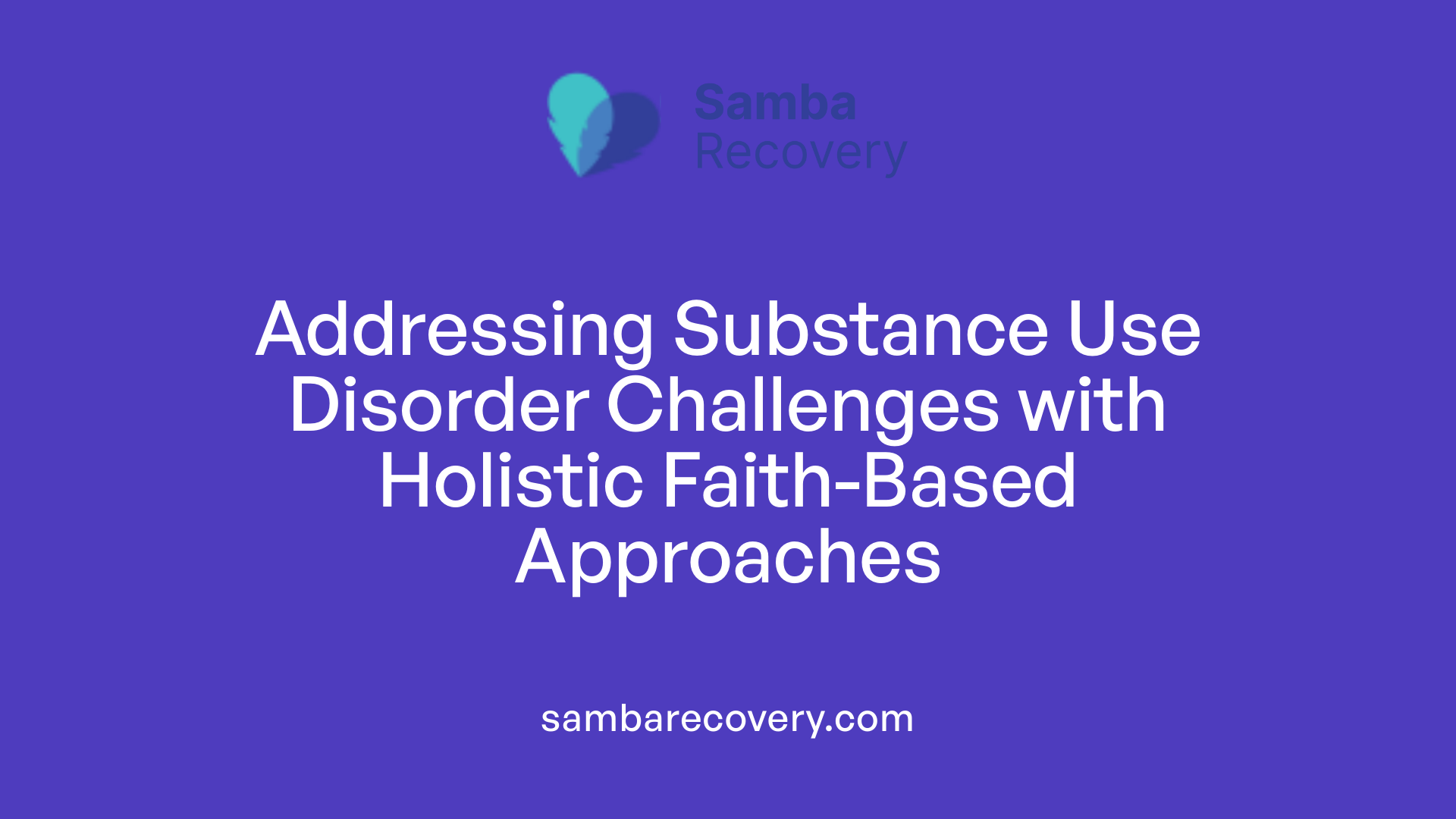Introduction: Faith as a Catalyst for Sobriety
The relationship between faith communities and sobriety is characterized by shared resilience, purpose, and healing. Faith-based organizations have long been instrumental in shaping recovery experiences, offering a blend of spiritual guidance and community support that addresses both emotional and physical aspects of addiction. As the world grapples with ever-rising addiction rates, understanding the unique contributions of these groups becomes vital. Through spiritual engagement, faith communities provide a protective layer against addiction, bolstering treatment efforts and fostering environments where sobriety can be maintained.
The Pivotal Role of Faith-Based Organizations in Addiction Recovery

What role can faith-based organizations play in reducing addiction?
Faith-based organizations play a pivotal role in reducing addiction by providing a supportive community that fosters recovery through spiritual guidance and emotional support. A significant 73% of addiction treatment programs in the USA incorporate spirituality-based elements, demonstrating the integral part these organizations play in many recovery frameworks, notably including the widely recognized 12-step programs.
Their impact extends beyond mere support; faith-based recovery initiatives contribute approximately $316 billion annually to the U.S. economy through various programs designed to help individuals reclaim their lives from addiction. Research highlights that faith can significantly reduce the rates of substance abuse, with individuals maintaining strong religious beliefs being substantially less likely to engage in drug use or binge drinking.
Additionally, faith organizations often facilitate access to essential resources, educating communities about signs of addiction and overcoming logistical barriers such as transportation to treatment services. By enhancing continuity of care, these organizations help build a robust safety net for individuals battling substance use disorders, reinforcing the protective role that faith can play in effective recovery.
Spiritual Practices: Pathways to Healing and Resilience

How do spiritual practices and faith contribute to the recovery process?
Spiritual practices and faith play a vital role in recovery from substance use disorders. By fostering hope, purpose, and resilience, individuals find essential tools for overcoming addiction. Engaging in practices like prayer and meditation enhances emotional and psychological well-being, helping individuals cope with challenges and stressors that arise during recovery.
Faith-based recovery programs often integrate spiritual dimensions with traditional treatment approaches. These elements promote a sense of community by encouraging participants to connect with others who share similar experiences. This community support is critical, as recovering individuals can engage in open discussions about their struggles without judgment, further solidifying their commitment to sobriety.
Additionally, spiritual beliefs can lead to a shift in focus from loss and addiction to gratitude and personal growth. Evidence shows that spirituality correlates with lower anxiety, higher optimism, and increased perceived social support, which can significantly contribute to a successful recovery trajectory. When individuals feel a sense of belonging and purpose, they are more likely to maintain abstinence and build a fulfilling life post-addiction.
Incorporating these spiritual practices into the recovery framework creates a holistic approach, addressing not only the physical and emotional aspects but also the spiritual needs of individuals seeking to heal from addiction. This comprehensive model fosters a supportive environment crucial for enduring recovery.
Building Community: The Heart of Faith-Based Support

Importance of Community in Recovery
Community plays a crucial role in the journey of recovery. In faith-based recovery programs, individuals find a sense of belonging and acceptance, which is essential for healing. Programs designed around faith allow participants to connect with others who share similar challenges, creating a non-judgmental environment where they can openly share their experiences and struggles.
Mentors and Sponsors
The involvement of mentors and sponsors significantly enhances the recovery experience. These individuals often serve as role models, providing guidance and accountability. Their presence encourages commitment to sobriety, pushing participants to stay on track with their recovery goals. Engaging in church activities and sharing in community rituals fosters spiritual connections, reinforcing the principles of compassion and support.
Benefits of Emotional Support and Community Engagement
Emotional support and community engagement in faith-based recovery programs offer numerous benefits, including fostering a sense of belonging and acceptance among participants. These programs create a non-judgmental space for individuals to share their experiences, facilitating personal growth and providing insights into recovery from peers who understand their struggles.
The presence of mentors or sponsors within these communities enhances accountability and motivation, reinforcing their commitment to sobriety. Additionally, engagement in church activities nurtures spiritual connections that enrich the recovery journey, aligning with Biblical principles of compassion and fellowship.
Overall, these community-based supports are vital in creating a robust foundation for long-term recovery, backed by collaborative efforts among faith-based organizations and local agencies, ensuring individuals are not alone in their journey.
Faith as a Protective Factor Against Substance Abuse

What impact does faith have on preventing substance abuse and fostering long-term sobriety?
Faith plays a significant role in preventing substance abuse and fostering long-term sobriety by providing individuals with a moral framework, community support, and a sense of purpose. This protective factor is evident in various studies; for instance, Dr. Brian Grim’s research found that 84% of respondents believe that faith reduces the risk of substance use disorders. Participation in faith-based programs, such as Alcoholics Anonymous, emphasizes surrendering to a Higher Power, which can be a pivotal step in breaking the cycle of addiction.
The Role of Community and Spiritual Practices
Engaging in religious activities contributes to a supportive environment where individuals can find strength. Regular attendance at faith services is associated with lower rates of substance consumption, reinforcing the idea that faith fosters healthier behaviors. The spiritual practices—prayer, meditation, and reflection—are not only therapeutic but also help manage stress and enhance emotional resilience.
Long-term Benefits of Faith Engagement
Overall, faith-based approaches cultivate hope, accountability, and a supportive network that is essential for sustained recovery from addiction. Such frameworks also promote forgiveness, self-compassion, and personal growth. Participants in faith-centered recovery programs often report better mental health outcomes, including lower anxiety levels, greater optimism, and a higher sense of social support, which are crucial for lifelong sobriety.
Integrating Faith into Personal Recovery Journeys
How can individuals integrate faith into their addiction recovery journey?
Integrating faith into the recovery process can be a powerful tool for individuals struggling with addiction. Participation in faith-based support groups provides community connections and shared experiences, offering a sense of belonging. Engaging with spiritual leaders can provide crucial guidance and moral support, encouraging personal growth.
Incorporating spiritual practices such as prayer and meditation allows individuals to manage stress and cravings effectively. These activities foster resilience, helping many recover from setbacks. For example, programs like Alcoholics Anonymous emphasize a reliance on a Higher Power, illustrating the positive impact of spirituality on maintaining sobriety.
Building relationships within a faith community not only enhances emotional and psychological support but also boosts accountability and motivation. Faith-based approaches promote healthy habits through shared values such as compassion and forgiveness, essential for overcoming addiction.
Role of spiritual leaders and community
Spiritual leaders play a pivotal role by offering counseling and resources tailored to individual needs. Their involvement often helps bridge gaps in traditional recovery programs, especially for underserved populations. Support groups within faith organizations foster a safe environment for individuals to share their struggles, emphasizing guidance and community support while reinforcing commitment to sobriety.
Moreover, the nurturing atmosphere of faith-based communities helps reduce the stigma surrounding addiction, encouraging participation in recovery programs. This holistic integration of faith and recovery not only nurtures the spirit but also addresses emotional, social, and ethical aspects of healing, promoting comprehensive recovery solutions.
Holistic Faith-Based Approaches: Bridging Gaps in Care

The role of faith in underserved communities
Faith-based organizations play a pivotal role in addressing substance abuse issues, especially in underserved communities. These organizations often provide a supportive network where individuals can find solace and encouragement while navigating the challenges of addiction and recovery. By integrating faith and community support, these initiatives create an environment that fosters personal growth and accountability.
In areas where stigma surrounding mental health and substance use recovery is prevalent, faith communities act as safe havens. They offer resources such as recovery support groups, housing, and various programs tailored to meet the spiritual and practical needs of individuals seeking recovery. The involvement of faith leaders and congregations enhances the accessibility of care in these critical areas.
Faith-based initiatives in mental health care
Faith-based recovery services not only target substance use disorders but also promote mental health through a holistic approach. These programs incorporate spiritual teachings alongside traditional therapeutic methods, addressing the emotional and psychological well-being of participants.
However, integrating faith into recovery services comes with its own set of challenges. The potential over-reliance on spiritual practices over evidence-based treatment can lead to conflicts between personal beliefs and professional care methodologies.
What are the challenges and solutions in integrating faith-based recovery services?
Integrating faith and spirituality in recovery services poses challenges such as potential over-reliance on spiritual practices over professional care and balancing conflicting personal beliefs. However, faith-based services offer significant solutions, providing holistic care that addresses body, mind, and spirit, particularly benefiting underserved communities where traditional services may lack.
Faith-based programs offer a wide array of services, including housing and peer support, aligning with individuals’ spiritual needs in diverse communities. These initiatives serve as critical gaps fillers, enhancing access to care where mental health and substance use recovery services might be stigmatized or inadequate.
| Challenge | Solution | Impact |
|---|---|---|
| Over-reliance on spirituality | Provide evidence-based treatment alongside faith practices | Holistic recovery |
| Conflicts with personal beliefs | Encourage dialogue between faith leaders and healthcare | Improved understanding |
| Lack of services in underserved areas | Expand faith community resources and support networks | Increased access |
Conclusion: Faith as a Pillar of Recovery
Faith communities continue to play a transformative role in the sobriety journey, offering not only spiritual and emotional support but also practical resources that aid in long-term recovery. Their ability to nurture holistic healing, foster community engagement, and address spiritual needs highlights their importance in the broader addiction recovery framework. As society increasingly recognizes the value of integrating faith into recovery, these communities remain steadfast in their commitment to support and uplift individuals seeking a new path free from addiction. Through faith, individuals find hope, resilience, and purpose, making these communities indispensable allies in the fight against substance abuse.
References
- The Role of Faith in Recovery | Gateway Addiction Rehab
- Research Shows Correlation between Faith and Recovery
- The Power of Faith in Recovery
- The Importance of a Strong Support System in Faith-Based Recovery
- Faith Communities’ Improvements in Readiness to Engage in …
- The role of faith and spirituality in enhancing mental health and …
- The Role of Faith & Spirituality in Recovery – Enterhealth
- Faith and Community Engagement | SAMHSA
- Faith-Based Recovery Support
- The Role of Faith in Overcoming Addiction: A Christian Perspective






